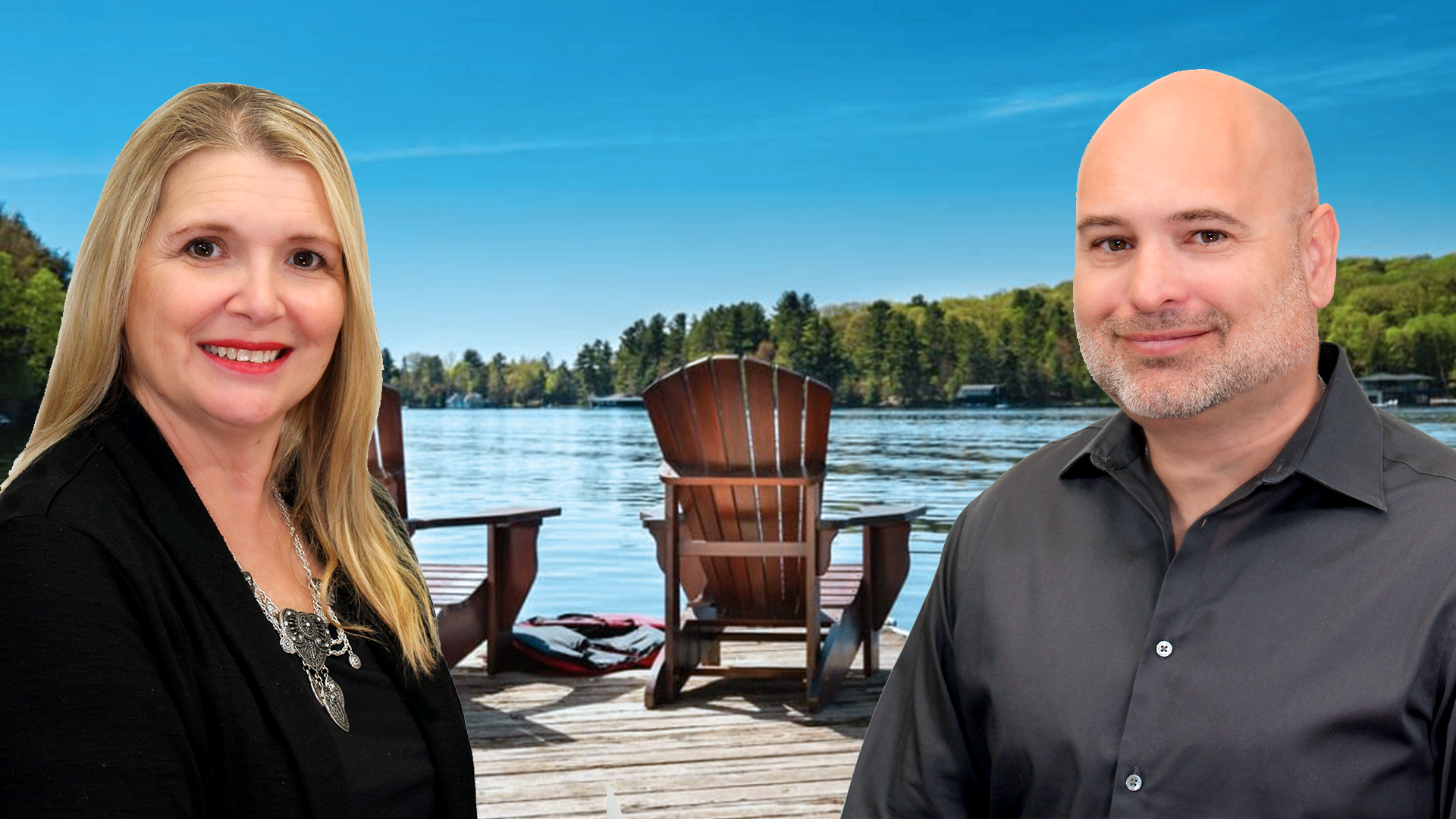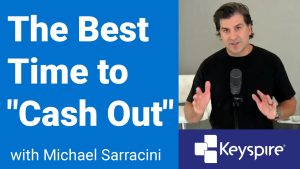How Does A Vacation Property Fit Into Your Portfolio?

Vacation rental properties are becoming increasingly popular for both renters looking to get away for a short vacation, and investors who are looking for ROI (with the added bonus of having your own getaway). It’s why platforms like Airbnb and VRBO have grown exponentially over the last decade.
Fellow Keyspire Success Coach Judi and I hosted an Income Property Labs training session on Vacation Properties. These were some of the major takeaways:
Geo-Demand
- Demand of your property can change based on time or year. For e.g., mountain towns have a high demand in the winter and beach cities have a higher demand in the summer.
- Some cities have major events which creates a high geographical demand. Check your local calendar for events and attractions.
- You can set lower prices during the low season; this allows for a little bit of income versus no income. Conversely, rent prices should be raised during high seasons to increase your profits when demand outweighs the short-term supply.
Occupancy
- Offer more sleeping accommodations to increase your nightly rate.
- When travelers are considering a vacation home rental as opposed to a hotel stay, they often do a person/cost comparison.
- Increasing the occupancy is a major contributor to higher demand for vacation home rentals.
- You can increase sleeping accommodations by adding simple items such as bunk beds, soft beds, etc.
Amenities
- Amenities are added value that help in attracting renters.
- If you make your vacation home child friendly with cribs, highchairs and toys, it helps attract families to your property.
- The cost spent in amenities adds to your revenue. The goal is making a vacation home feel like a luxury getaway. Be creative and think of things families and groups of people would like on a vacation property and add them!
- Travelers are looking for features like hot tubs, pool tables, bicycles, hammocks, fire pits, and Wi-Fi.
Location
- Homes located in a downtown area are able to command a much higher revenue than homes located in the more rural areas.
- A property with an exceptional view will be able to charge a premium.
- Simply compare your homes advantages and limitations compared to other properties in the area. Each vacation rental home market has its own unique situations, comparable pricing is the best approach to take.
This was such a hot topic, we returned for a mini-encore to answer additional questions.
Check out this short recording to get answers to the following:
- Do you take a damage deposit?
- Do you charge a rental fee for use of canoes, kayaks, motorized boats, etc.?
- Are there liabilities for allowing guests to use motorized vehicles?
- Is tax charged to each booking?
- What are some websites to advertise the vacation rental?
- What are some pros of vacation rentals?
Check out a transcript of this video below:
Welcome. We’re gonna take up some of these questions that we’re asked in IPL today or over the last couple of days. I was gonna talk a little bit about the damage deposit. So the way I handle it is I do take a damage deposit, I take a $300 deposit. My process is such that you pay $300 to make your booking.
And then 30 days before you arrive, you must pay for your booking in full. On that mark, at 30 days prior, I add a damage deposit and a cleaning fee. The cleaning fee is $50. The damage PO deposit is $300. And what happens is 24 hours after they check out, they get their $24, their $300 deposit back.
Or… If they’re booking for the following year, I apply that $300 to the next year as the deposit, right? So most of my guests come back year after year. So what I’ll do is I’ll keep that $300 damage deposit as next year’s deposit, and then we’re square providing there’s no damage. Now, typically I don’t have a lot of damage.
I’ve had somebody go home with a blanket and I called them on the road. I said, Hey, you grabbed one of my blankets by mistake, can you just drop it off in, in on your way or ship it to me or whatever. And so they dropped it off at my daughter’s house in London at the time. And I’ve had people break glasses and stuff like that, but they typically replace it or throw a little money my way so that I can replace it. But most people are pretty upfront and honest because I have repeat guests that come back and forth every year. So I think the best way to handle it is really just by instituting a damaged deposit. Do you do a damaged deposit, Jason?
So that’s something I’ve been considering. We haven’t gone full rental yet, but we’re close, we’re almost done our renovations, I’m thinking. Probably. I gotta see what we have. There’s some dishes there. I’m just trying to think, what could happen. But I know , my parking is shallow. So I could see if someone backed up, they could take out the fence or the tree or whatever, right?
So I’m thinking I probably will have some kind of damage deposit. I just think it, I think it makes people more aware, to be honest with you. Like anytime, anytime I’ve rented a cottage, I am, when there’s a damage deposit, I’m definitely mindful and, not like you’re gonna smash a barbecue or put a hole in drywall or anything, but like you said, breaking a plate or whatever.
Yeah, and things happen, right? You get, people are on vacation, they’re drinking, things are happening. So sometimes they , they cause damage and they don’t mean to, but they do. I’ve had, dogs ripped through screens, they’ve ripped all the screens out of the windows and whatnot.
I expect that to be replaced. Yeah. So yeah, and I’ll give them the difference. Give them back what it costs me, I, send them a receipt and say, this is what it costs me for this repair, and here’s your difference. And, and they seem to be pretty good with it.
All right. So we had a question as well about boats and watercraft and things like that. Do you wanna address that one?
Yeah, so this is, as someone who’s rented cottages quite a bit over the years, taking my family, one of the things I looked for was, a cottage with either a canoe, a motorized boat that we could rent as well, or, kayaks, which is nice, right?
It’s a nice thing to have when you’re going up in, in nice toys to just get out in the water and not have to lug those things yourself. , when I was considering doing it for mine, the, the first thing he asked me the guys at Broker Link was Matt asked, do you or are you planning on renting, kayaks or having kayaks on the property?
And I said I was considering it and then, he went over the differences in insurance and I’m like, you know what for the cost, I didn’t really think it was worth it for me because this is a cottage that we’re gonna, we’re gonna use ourselves. So for that extra insurance, it’s a little bit different for you.
So you’ve got…
Yeah. The way I handle it is I don’t rent them. Yeah. I don’t rent the equipment. What I do is I just are you still talking, Jason? It seems to be no. Okay. Okay. Sorry. I saw, it looked like you were talking on the video and there we go. I don’t actually rent the equipment, so it’s part of their booking.
So I have paddle boats, I have canoes, kayaks, boogie boards, toys like that that they can use. But none of it is motorized. Like I do have a motorboat but I always say no to the guest because of the insurance and, I refer them to somebody else in the community that they can rent from.
But I say no as far as my boat is concerned. And I provide all of the life jackets and safety kits as well for the paddle boats and all that stuff. And if they’re gonna use the paddle boats, they have to just sign it out. That way they don’t have it for the entire week and everybody gets to use it. So I say, I just ask that you sign it out and, have it no more than four hours, for example, so that other people get a chance to use them as well.
I have two and two cottages that I’m renting this year. The other one we’re not renting, but… so I have enough for everybody, that they can use one, but I ask them to sign it out. And that’s just so partly is so that I know where this stuff is and who’s actually on it. And I have them also, they have to take a life jacket and I supply all sorts of life jackets and they’re all there different sizes for little kids the whole bit. And they have a life jacket. But that’s it. I don’t rent it. It’s just available. That way it’s it’s easier for me, it’s easier for insurance cuz they’re allowed to use the equipment that’s on site.
They’re just, it’s just not a rental. Yeah. Okay. And I don’t do motorized anything. Yeah, you get it for, it’s because there’s liability.
You get it on a whole other layer too with the motorized. Because you, in Ontario, you have to have you have to have your boater’s license for any motorized vehicle.
Yep. Exactly. And then you’re dealing with them, showing you their boater license, and then you’re responsible for that, and I just I don’t wanna go there.
Okay. So over to an HST question, we had question about tax. If you’re, if you’re posting on Airbnb, for example, you have to collect H S T and it’s all part of the website and you set up your rates and everything.
Any business in Canada. There are tax implications. So if you’re using if you’re doing a rental and somebody has and you’re in province of Ontario or whatever, there’s 13%. You’ve got anywhere you have to pay H S T, right? So it’s a business. It’s different than a rental.
It’s different than, I’ve got a lease agreement or something with you. So I do charge H S T. My accountant takes care of whatever needs to be taken care of, but I charge it on all of my bookings. And then I get most of it back. To be honest, it’s almost a wash because I buy so much and do so much that I pay H S T on that the H S T I collect is almost the same as, to me it’s a wash, but the government wants that money, so we need to make sure that they get it. And yeah, and most websites will set it up for you and you can collect that HST automatically. So that works out quite nicely.
We’re gonna talk a little bit about some of the websites.
There’s more than a few exposure… it doesn’t matter if you’re selling or you’re renting, you want the most exposure possible. So there is a number of great websites ontariocottagerentals.com, cottagerental.com, cottagerentals.com, and just google these different websites Facebook marketplace.
The one you use, is it Canada? Cottage Cottages in Canada? Cottages in, I use Cottages in Canada. One Canada of the reasons I use that is because they accept credit cards so I can, people can pay for their vacation by credit card. And in this case, the the cost and the expense of the credit card fees goes back to the the buyer, not to me.
Which is great. They pay their, the 3% premium to pay by credit. But it’s convenient for them. There’s also VRBO Vacation Rental By Owner, Cottages in Canada, Home Togo, Cottages – Canada, Airbnb. It’s just endless, right? Yeah. There’s so many places.
Kijiji, Facebook Marketplace, there’s all of those will give you, obviously the free ones. That’s an easy decision Kijiji, Facebook Marketplace. But there, it all adds to Google Analytics, when anyone’s searching a cottage, if, the more your cottage is out there, the higher it pushes it up when someone’s searching for something.
And so the reason I chose Cottages in Canada is because I’m trying to attract international travelers.
Now during covid, that’s I’m not getting as many international travelers, but I’m also , what it’s doing is it’s sending Canadians to cottages in Canada, and then they search their area. I don’t pay much for it. I paid $160 for the year. First time I did it within within a couple of weeks or maybe even a week and a half, I ended up with six extra bookings, so the return on investment was huge.
Yeah. For $160.
This year, I did it as well. I renewed my membership. I do it every year in. Since the cottage ban or the short term rental ban was lifted for Covid 19, I I had 745 viewings in less than a month. And of those they converted to 12 inquiries. And those are 12 people that I can convert now to sales, right?
So I’m completely sold out for this season and I honestly attribute it to the traction that I get on the website. I don’t advertise hardly anywhere else, like I advertise on Facebook, but I link back to cottages in Canada. I link back to that site, or I’ll link back to my business site, which is, my website for my cottages.
And I have a business site for it because then all my rules are on there as well. Like one of the things is, I only do seven day. And that’s clear. The rules are clear. And when they try to book less than that it tells them that it’s not available. It doesn’t meet the criteria.
So part of the reasons I I use these types of websites is because it does a lot of filtering for me. I, I can I can get the inquiries, like I had 745 viewings, but only 12 inquiries because those 12 people have already been… not predetermined, but filtered. They’re filtered because the criteria has been met.
Like I’m very clear in my listing that it’s a seven day booking, that the, here’s the calendar and it shows them what’s available. So people I get serious inquiries only …right. Is the way it is, and it helps me with the administration. If I had to manage, over 750 viewings and inquiries and the whole bit, it would be a full-time job.
Yeah. So they’re qualified leads is really what they are.
Yeah exactly. They’re qualified leads because my criteria’s already there and I can refine it and I can do things on the website with their services so that I’m really only getting qualified leads, which is helpful.
Now, some of these sites too, will actually offer they actually offer agreements vacation rental agreements that you can download and have have your guests sign as well, which is nice and handy. I don’t know if all of them do. I think most of them do.
Yeah, a lot of them do. A lot of them do that. It’s been helpful for me anyway, so that’s my tip is that if you are going to have a cottage check out some of the top like you said, Google Analytics, check out where if you’re gonna look for a cottage, what would you Google?
And then see what your competition is using and check out those sites and check out how they’re getting their bookings. Maybe even call a little bit of your competition, find out what they’re doing. Because the way to find that out really is just to do a little homework, right?
Sure.
And google it, figure it out, see what’s out there in your neighborhood, and and maybe just emulate what they’re doing as well. Because it if it’s showing up at the top, it’s likely that they’re having success.
Sure. Yeah. So I think that was it for questions. Did you have anything else you wanted to add?
No, not at this point. Yeah, with any booking, obviously whenever you’re renting the, I think you’ve come across this, anytime you’re renting to someone new, it’s those repeat guests that you want to get to the point get your cottage to, it’s nice. And, when you’re renting to someone else, it’s just like a tenant
You just, you’re not sure sometimes where you’re getting, there’s some bad seeds out there sometimes, unfortunately some people feel entitled. But when you get those great customers that are repeating every year, it’s fantastic.
Yeah. And the great thing about it is they’re self evicting, right?
So if you don’t have that great guest, they self evict, they go home on Saturday or whatever day is that their checkout is because have their j o b to go to on Monday. So that’s one of the reasons I love vacation rentals is because the guests are self evicting. And because I get repeat customers year over year I already know for 2021 that I’m at 60% occupancy.
Like I, I know that, like I know that I’ve got, at least two thirds of my bookings are done and the rest of it will be new business. So cause they don’t all come back, but some of them do. All right. Great. Let’s get this recorded and and sent out to everybody. Okay? The cat in the background is telling me it’s my time is up,
All right, have a good day, Jason. Bye Bye
Recent Blogs
The Best Time To “Cash Out” Is…
“When should I ‘cash out’ and sell my properties?” I hear this question a lot and it blows my…
Attract Higher Paying Tenants by Being Pet Friendly!
Optimizing an investment property is all about maximizing your income and minimizing your workload and expenses, such as tenant turnover.…
The 7-Step JV Process
“It’s better to own 10% of 100 properties than 100% of 1 property.” No matter how wealthy and successful…
Income Vs Net Worth
In today’s world, two of the most important financial metrics are income and net worth. Understanding the distinction between the…




